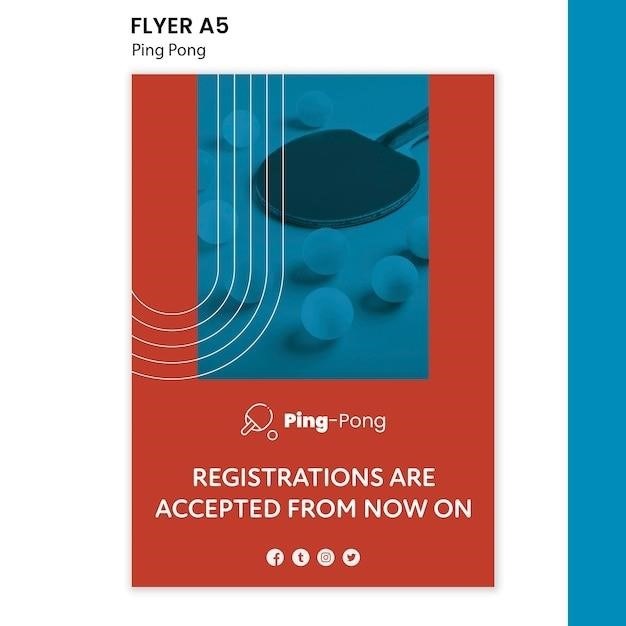
AS9100 PDF⁚ A Comprehensive Guide
This guide explores the AS9100 standard‚ a crucial quality management system (QMS) for aviation‚ space‚ and defense. It details obtaining the AS9100 PDF‚ understanding its requirements‚ and implementing a compliant QMS. Further information on certification and resources is also provided.
Understanding AS9100 and its Relation to ISO 9001
AS9100 is an internationally recognized quality management system (QMS) standard specifically designed for the aviation‚ space‚ and defense industries. It builds upon the foundational principles of ISO 9001‚ a widely adopted QMS standard applicable across various sectors. While ISO 9001 provides a robust framework for quality management‚ AS9100 incorporates additional requirements tailored to the unique demands and complexities of the aerospace industry. These additions address aspects such as safety‚ reliability‚ and regulatory compliance‚ which are paramount in the aerospace sector. Therefore‚ AS9100 can be viewed as an extension of ISO 9001‚ enhancing its applicability and effectiveness within the aerospace context. Understanding this relationship is crucial for organizations seeking to implement a robust QMS that meets both general and industry-specific requirements. The AS9100 standard‚ therefore‚ ensures a higher level of quality control and risk management compared to a system based solely on ISO 9001. Achieving AS9100 certification demonstrates a commitment to excellence and adherence to stringent quality standards within the aerospace industry. The benefits include enhanced customer confidence‚ improved operational efficiency and a competitive advantage in a highly regulated marketplace.
Obtaining the AS9100 Standard⁚ Purchase and Copyright
The AS9100 standard‚ a critical document for aerospace quality management systems‚ is not freely available online due to copyright restrictions. To legally obtain the AS9100 PDF‚ purchase is necessary through authorized channels. These channels typically include the International Aerospace Quality Group (IAQG) or designated national standards bodies. Purchasing the standard ensures access to the most current and legally compliant version‚ crucial for certification purposes. Unauthorized distribution or sharing of copyrighted material is a violation of intellectual property rights and carries legal consequences. The cost of purchasing the standard varies based on factors such as the specific revision and the purchasing organization’s location. Investing in the official document is essential for organizations seeking AS9100 certification‚ as it provides the definitive reference for implementing and maintaining a compliant quality management system. This ensures that all processes and procedures align with the requirements of the standard‚ reducing the risk of nonconformities during audits and enhancing the credibility of the certification.
Key Requirements and Clauses within AS9100 Rev D
AS9100 Rev D‚ building upon ISO 9001⁚2015‚ introduces specific clauses addressing the unique demands of the aerospace industry. These include stringent requirements for risk management‚ encompassing identification‚ analysis‚ and mitigation of potential risks throughout the product lifecycle. Emphasis is placed on the process approach‚ advocating a structured and controlled approach to processes to ensure consistent output. Traceability and control of materials are also paramount‚ requiring robust systems to track components from origin to final product. Furthermore‚ the standard mandates robust configuration management to ensure product integrity and prevent deviations from design specifications. Continuous improvement is a core principle‚ demanding regular monitoring of processes and identification of opportunities for enhancement. Compliance with regulatory requirements and customer specifications is strictly enforced‚ underlining the importance of adhering to industry regulations and meeting customer expectations. The standard also emphasizes the importance of effective communication and information management to facilitate collaboration and ensure transparency within the organization. Understanding these key requirements and clauses is crucial for successful AS9100 certification.
Implementing an AS9100 Quality Management System (QMS)
Successful AS9100 QMS implementation requires a phased approach‚ integrating risk-based thinking and process mapping. Adapting existing ISO 9001 systems simplifies the transition. Thorough training and documentation are essential.
The Process Approach and Risk-Based Thinking in AS9100
AS9100D emphasizes a process approach‚ aligning with the Plan-Do-Check-Act (PDCA) cycle. This systematic methodology ensures continuous improvement and proactive risk management. Risk-based thinking is integral‚ demanding organizations identify‚ assess‚ and mitigate potential threats to quality and compliance. The standard encourages a proactive approach to identifying and managing risks‚ rather than reacting to problems after they occur. This forward-thinking strategy improves efficiency and minimizes disruptions. Effective implementation requires a thorough understanding of the processes involved and the potential risks associated with each. A robust risk management plan is key to successful AS9100 certification. This includes establishing clear procedures for identifying‚ analyzing‚ evaluating‚ treating‚ monitoring‚ and reviewing risks. Regular internal audits and management reviews are vital to ensure the effectiveness of the risk management system and its alignment with the overall quality management system. By embracing a process-oriented and risk-based approach‚ organizations can enhance their quality management system and achieve greater operational efficiency. The ultimate goal is to consistently deliver high-quality products and services that meet or exceed customer expectations. This process-oriented approach coupled with risk-based thinking forms the cornerstone of a robust and effective AS9100 compliant QMS.
Integrating AS9100 with Existing ISO 9001 Systems
For organizations already certified to ISO 9001‚ integrating AS9100 often involves a streamlined process. AS9100 builds upon ISO 9001‚ incorporating its requirements and adding specific clauses relevant to the aerospace industry. This means many existing ISO 9001 procedures and documentation can be leveraged; The key is to identify the gaps between the existing ISO 9001 system and the additional requirements of AS9100. A thorough gap analysis helps pinpoint areas needing adjustment or enhancement. This might include updating documentation to reflect AS9100-specific terminology‚ adding processes to address aviation-specific regulations‚ or refining existing procedures to align with risk-based thinking. Training employees on the differences between ISO 9001 and AS9100 is essential to ensure a smooth transition. Careful planning and a phased implementation approach minimize disruption to ongoing operations. By strategically integrating AS9100 with an existing ISO 9001 system‚ organizations can efficiently achieve AS9100 certification while minimizing resource expenditure. This approach leverages existing infrastructure and expertise‚ leading to a cost-effective and less time-consuming path to AS9100 compliance;

Benefits of AS9100 Certification
AS9100 certification significantly enhances an organization’s reputation‚ boosts market competitiveness‚ and demonstrates a commitment to superior quality and customer satisfaction within the aerospace industry.
Competitive Advantage and Market Recognition
In the highly competitive aerospace and defense sectors‚ AS9100 certification provides a significant competitive edge. It serves as a powerful marketing tool‚ instantly conveying a commitment to quality and adherence to stringent industry standards. Potential clients and partners readily recognize the AS9100 symbol‚ associating it with reliability‚ trustworthiness‚ and a dedication to exceeding expectations. This certification opens doors to new opportunities‚ often becoming a prerequisite for participation in major projects and collaborations. It demonstrates a company’s capability to consistently meet the demanding requirements of the industry‚ fostering confidence among stakeholders and strengthening its position within the global marketplace. The certification process itself necessitates a thorough internal review of operations‚ often leading to process improvements and enhanced efficiency beyond mere compliance. This results in a demonstrably more robust and competitive business. Furthermore‚ AS9100’s internationally recognized status transcends geographical boundaries‚ facilitating access to a wider pool of customers and partners worldwide.
Improved Quality and Customer Satisfaction
AS9100 certification isn’t merely a compliance exercise; it’s a catalyst for substantial improvements in quality and customer satisfaction. The structured approach inherent in the standard promotes a proactive‚ data-driven culture focused on continuous improvement. By meticulously documenting processes and implementing robust quality control measures‚ organizations significantly reduce defects and enhance product reliability. This translates directly into higher customer satisfaction‚ as products consistently meet or exceed expectations. Furthermore‚ the emphasis on risk-based thinking embedded within AS9100 allows companies to proactively identify and mitigate potential issues before they impact production or customer experience. This proactive stance builds trust and reinforces the organization’s commitment to delivering high-quality products and services. The resulting higher quality and reliability lead to reduced warranty claims‚ fewer returns‚ and enhanced customer loyalty. Ultimately‚ the investment in AS9100 certification yields a tangible return in the form of improved customer relationships and a stronger brand reputation.
Resources and Further Information
Need help with AS9100 implementation? Explore online resources‚ implementation guides‚ and consult certification specialists for expert guidance and support in achieving compliance.
Access to AS9100 PDF Materials and Implementation Guides
Securing the official AS9100 Rev D PDF is essential for any organization aiming for certification. Direct purchase from recognized standards bodies like SAE International is the only way to guarantee authenticity and compliance. These PDFs provide the complete standard text‚ crucial for understanding requirements and building a compliant Quality Management System (QMS). Supplementing the standard PDF‚ numerous implementation guides offer valuable assistance. These guides often include checklists‚ templates‚ and step-by-step instructions‚ simplifying the often complex process of integrating AS9100 into existing operational frameworks. Many consulting firms provide tailored implementation guides‚ offering practical support based on specific organizational needs and existing ISO 9001 systems. Remember‚ accessing unofficial or pirated copies is risky and could lead to non-compliance issues during audits. Always prioritize obtaining the official document for accurate interpretation and successful certification. The investment in the official PDF and potentially a supplemental guide will be far outweighed by the benefits of a robust‚ compliant QMS.
Certification Specialists and Consultancy Services
Navigating the complexities of AS9100 certification is significantly easier with the support of experienced professionals. Numerous certification bodies offer auditing services‚ ensuring your QMS aligns perfectly with the standard’s requirements. These bodies conduct thorough assessments‚ identifying any gaps and providing guidance for corrective actions. Beyond certification audits‚ consultancy services offer invaluable support throughout the implementation process. Consultants provide expertise in tailoring your QMS to meet the specific needs of your organization‚ offering practical guidance on documentation‚ training‚ and process improvements. They can help streamline the integration of AS9100 with existing ISO 9001 systems‚ minimizing disruption and maximizing efficiency. Selecting a reputable certification body and consultancy firm is crucial. Look for organizations with a proven track record in aerospace quality management and a deep understanding of AS9100’s intricacies. Their expertise can significantly increase your chances of successful certification and long-term compliance.
